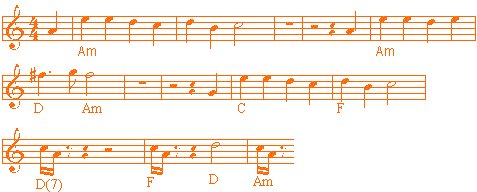 Review
by Bluntinstrument Review
by Bluntinstrument
As one of Tim Burton's regular collaborators, Elfman shares
an appreciation of the material with other artists involved by investing
that little bit more than on other projects; either that or the material
and direction itself brings out the best in a composer with natural leanings
towards the fantastic. A Burton film invariably comes accompanied by a
genuinely rich and inventive score, and Alice In Wonderland is
no exception. Despite the 5 year gap between this release and those of
The Corpse Bride and Charlie and the Chocolate Factory (Elfman's
services were not required to adapt Sweeney Todd - perhaps there
is a trend here that Burton and Elfman need a little space after every
stop-motion musical), one is plunged straight back into the pleasurably
free soundworld of the canon, a neat contrast to the grey-scale Wolfman.
Elfman uses a gorgeously large orchestra (oddly some of its sitar etc.
extravagances and cattish string fun are so well integrated they sound
almost conventional) with chorus (favouring younger female singers, perhaps),
topping a ripping fantasy underscore with a principal character vocal
theme that somehow reminds one of the Serenada Schizophrana chorus
and Edward Scissorhands simultaneously. There is a Mahlerian folksy
childishness that comes from the former, mixed with the gentler tone that
comes only with a larger orchestral palette; in addition pleasurable harmonic
twists, and melodic simplicity that never tires of repetition (believe
me!) - all traits straight out of Depp's first Burton film. The choice
and combination is an inspired one, at once vivid, dreamlike, childlike
and exciting.
Elfman wisely places the broadest version of the theme
(which comes from the end credits of the movie) at the beginning of the
CD and sprinkles varied returns or echoes throughout in a way that reminds
the reviewer of the pattern of Mussorgsky's Pictures at an Exhibition.
Sandwiched between these magical signposts is a fantasy adventure score
that could be criticised for not being Elfman's more distinctively chaotic
affair, but is arguably a superior score to Charlie in its unity
of tone despite using some of its chugging motifs. This helps bind the
tone of the film together: it aids Burton's escape from the more sequential
nature of the original stories; it is less distracting than earlier scores
so one is left more at the mercy of the narrative than the mechanics of
a Burton movie (Big Fish was in many ways a victim of this postmodernist
deconstruction, although it is likely the unevenness was on purpose);
finally, it makes for an enjoyable and repeatable experience on CD. Indeed
the arrangement of the music on disc is in many ways the more obviously
enjoyable access to Elfman's score, with tracks of decent length and most
often continuing without pause. In the movie, Burton must languish first
in reality before entering Wonderland, and the end credits jar with a
pop song opener that is totally at odds with the film. The large orchestra
and chorus support and enhance the action splendidly, but the smoother,
more 'mature' scoring submerges the thematic material just a little too
far; however, this may leave it with a better chance of rewarding repeat
viewings.
Verdict: Magic but mature film score makes the perfect
Elfman CD release. Highly recommended.
Score Rating: * * *
CD Release Rating: * * * *
Wonderland (Underland?) chords:

Alice's theme:

Note1. Track 9. 0'17"-47" Batman Returns
Penguin theme referenced? The 1st part of the theme is in various forms
of development in other parts of the score and seems to derive from the
3 chord Wonderland motif above.
Note2. The 3 chord Wonderland motif reminds the reviewer
too much of an important point in Zimmer's score to Dead Man's Chest,
on the commcercial soundtrack at the end of track 11.
|
![]()